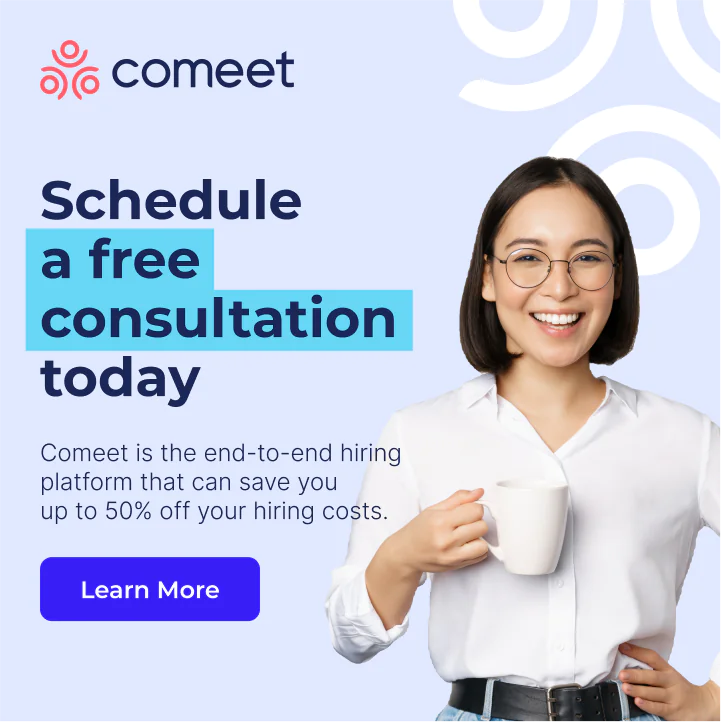Recruiting high-quality candidates isn’t an easy task. A successful recruiting strategy requires mastery of the full life cycle recruiting method. This method includes every phase of the recruiting process, from preparation to onboarding.
The entire recruiting process can be challenging, especially the selection phase. After all, the selection process is where critical evaluations and decisions occur, and the consequences of a bad hire can be difficult to navigate. That’s why this article is designed to help guide you through the candidate selection phase of full lifecycle recruiting.
What is full cycle recruiting?
Before we dive into the selecting stage of the process, let’s take a quick look at the stages of full life cycle recruiting. Full life cycle recruiting is a holistic solution that can empower small to medium-sized businesses to hire quality talent without large recruitment teams. It can also make large recruiting teams lean and efficient.
Full cycle recruiting channels an organization’s recruiting capabilities into a process. It allows a single recruiter to facilitate the entire apply-to-hire recruiting cycle.
While different organizations adapt the full cycle recruiting process to their unique needs, it takes place in six general recruiting process steps:
- Preparing: The full cycle recruiter works with the hiring manager to define the needs for the position. This process includes highlighting the problems the organization wants to address, the qualifications of an ideal applicant, and the job duties.
- Sourcing: The recruiter uses the job description and qualifications to create a list of candidates from a pool of applicants using job boards, social media, and other tools. Internal and passive candidates with the right qualifications can also be encouraged to apply.
- Screening: The recruiter reviews candidate resumes and applications from the sourcing step to eliminate unqualified candidates and offers a phone screen to assess candidates that make the cut.
- Selecting: Selecting is the critical stage after the initial screening, and it’s typically a collaborative effort between the full cycle recruiter and hiring manager. While the specifics will vary across different organizations, the selecting phase typically includes post-first-round interviews, additional evaluations, and scorecards.
- Hiring: The recruiter sends a job offer to the preferred candidate, and finalizes background and reference checks, pay negotiations, and start dates.
- Onboarding: The recruiter or HR team will take the final step in the full cycle recruitment process. They arrange for the employee to arrive and meet with a point-of-contact to ensure the organization makes a good impression to keep the new hire long-term.
Candidate selection tips
The candidate selection process can be overwhelming and stressful. While using an applicant tracking system (ATS) is a crucial component, the decision making process can still be challenging. With that said, here are our “outside the box” recommendations for the recruitment and selection process.
Look past the resume
While resumes will always be a key part of the candidate selection process, it shouldn’t be the only factor during a candidate’s evaluation. At some point, most hiring managers have experienced a poor performing employee who has a stellar resume. The risks of making a bad hire can be avoided by asking interview questions that go beyond the CV.
Try to hone in on the difference of what the candidate actually accomplished versus what they simply participated in. Were they key contributors in this accomplishment, or did they have a more passive role? Do they prefer to work independently, or thrive in team collaborations? It is important to structure questions in a way that lets you know if the candidate is compatible with your current team dynamic.
Taking a glance at their social media accounts can also provide some insight. Profiles can provide a quick snapshot of the candidate, allowing you to better determine if they will be a good fit for your business.
Don’t forget cultural fit
During the candidate evaluation phase, it is easy to focus solely on resumes, metrics, and past accomplishments. While all these are certainly important, some hiring managers and recruiters tend to overlook if a candidate will fit into the company culture. Individual candidates may require more structure, while others perform better independently. It is important to consider how the candidate will fit in with the team and leadership style of the department.
Cultural fits can be even more crucial for customer experience positions. Does the candidate fully understand your client base? Or will there be a learning period for the candidate to understand your customers?
Leverage informal, unstructured interviews
Having an informal, unstructured interview outside of the office can provide a lot of insight. Meeting in a less formal setting will make it easier to have a simple, casual conversation that will let you know more about the candidate. An unstructured interview shouldn’t have any prepared leading questions. Instead, simply let the conversation have a natural flow. A casual conversation will allow you to gain more insight about the candidate, and vice versa.
Informal interviews allow you and the candidate to better determine if you would be able to spend long working hours together. Ask yourself, how do you feel during and after the conversation? Do you feel more motivated, smarter, and energized? An informal interview will allow you to gauge how a candidate can affect the morale in the office.
Focus on the future
Too often, it is easy to hire a candidate based on what you need right now while neglecting what you will need in the future. As your company grows, will the candidate be able to grow with the company? Are they willing to pick up new skill sets as the business environment changes?
Structured questions during the interview phase can help you explore the candidate’s growth potential. What new skill sets did they learn in their previous roles? What are their personal goals for career growth?
While it is important to focus on past accomplishments during the interview, you should also have some questions focused on the future. This is a two-way street. Be sure to inform the candidate of where the company wants to be in the coming years, and how they would fit in the picture.
Anticipate employee growth needs
Just as you want your company to grow, candidates will also want to grow professionally. A candidate’s growth goals should be discussed in the interview phase to ensure compatibility. Is the candidate seeking a mentor, a future senior role, or perhaps they want to work cross functionally?
Understanding where the candidate wants to be in the future can help you determine if they will be a good long term fit or not. If your company doesn’t have the growth opportunity that the candidate is seeking, then they may leave for other opportunities in a short amount of time.
Testing
Pre-employment testing is an important aspect of the selection phase. The specifics of pre-employment testing will vary from company to company and role to role, and they may include personality tests, skill assessments, etc.
A growing trend in pre-employment testing includes emotional intelligence. Emotional intelligence can measure soft skills, such as empathy, communication, and ability to understand others. It is a highly valued trait to measure management potential.
Personality tests can provide better insight as to how a candidate will fit on the current team. Personality tests are also beneficial should the candidate be hired. It will let their direct supervisor understand their motivations, goals, and interests.
Hire Faster and Smarter With Comeet
Comeet is designed to help fast growing businesses with the recruiting process. Full cycle recruiting has been simplified with our suite of services. We can provide dynamic ATS, on-demand recruiting, candidate pipelines, and an embedded TA team.
Schedule a demo today to see Comeet in action.





























